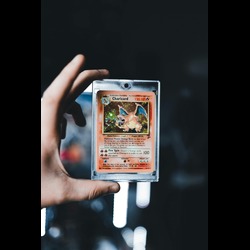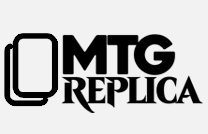
Discover how MTGreplica tackles issues caused by MTG counterfeit cards while AI-based recognition systems help protect collectors and fair play.
Overview
As artificial intelligence continues to reshape multiple industries, the world of trading cards is no exception. Collectors and players face growing concerns over the rise of counterfeit Magic: The Gathering cards, with replicas becoming increasingly difficult to detect. These deceptive products hurt marketplace trust, lower collector value, and blur the line between fair play and exploitation. This article examines which problems MTGreplica helps the community confront when it comes to MTG counterfeit challenges, how AI is creating stronger defense systems, and why transparency matters more than ever to preserve the future of both competitive and casual Magic play.
Counterfeits in the Marketplace
Which problems are typically at the root of counterfeit trading cards spreading so quickly? The global marketplace, fueled by online sales, gives bad actors an easy channel to circulate fakes. Players who invest significantly in building decks risk losing hundreds or thousands of dollars when fraud is undetected.
This is why the phrase MTG counterfeit is central to so many community discussions. Unlike honest proxies used for fun or deck tests, counterfeits are meant to deceive—impacting trust between buyers and sellers as well as eroding confidence in competitive events. MTGreplica sheds light on these concerns, educating players so they can distinguish between acceptable proxies and fraudulent counterfeits.
AI as a Shield for Collectors
The advancement of artificial intelligence introduces new opportunities for safeguarding collections. Computer vision can assess foil layers, ink saturation, and even cardboard thickness. In some cases, AI detects imperfections invisible to the human eye, giving collectors an extra layer of protection.
For newer fans, these tools operate like a safety net, letting them buy or trade with less worry. Seasoned players recognize that AI systems could also evolve into authentication standards, making evaluations cleaner and fairer. MTGreplica supports these trends, highlighting the community’s responsibility to welcome technology as a collaborative tool rather than a replacement for knowledge.
Building Community Integrity
Beyond tools and scanners, how communities respond to counterfeiting defines the long-term health of the game. A market cannot function if trust is lost, and deception harms both local playgroups and global trading spaces. To counter this, MTGreplica promotes honest labeling of proxies and discourages reselling fakes as originals.
Clear communication works alongside AI technology to rebuild integrity. By educating players, platforms ensure that the excitement of pulling a rare card remains authentic, backed by confidence rather than doubt. This sense of collective trust strengthens both competitive tournaments and the casual scene.
The Path Ahead for Responsible Play
As AI develops further, collectors may eventually rely on instant mobile verification tools before confirming trades. This vision of the future makes collecting safer, but only if players remain committed to honesty in practice. The presence of MTG counterfeit cards can never be completely eliminated, but transparency minimizes the harm they cause.
MTGreplica dedication to education signals an important direction: communities that balance AI’s precision with ethical play will always thrive. By drawing attention to counterfeit risks while encouraging fair proxy use, MTGreplica helps safeguard the hobby from exploitation and ensures the joy of the game carries forward.
